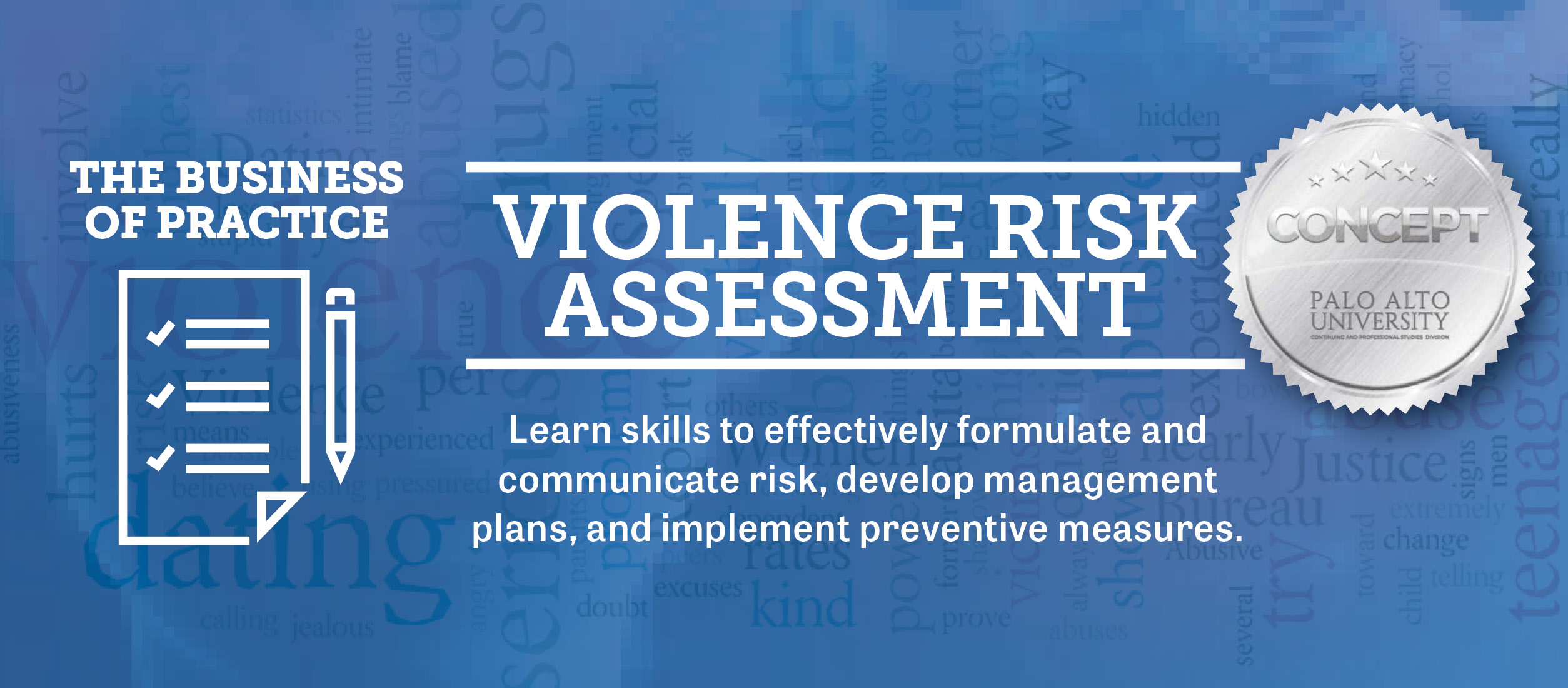What is the Goal of the Violence Risk Assessment Certificate?
This certificate aims to enhance professional decision-making associated with violence risk and learn skills to effectively formulate and communicate risk, develop management plans, and implement preventive measures. Courses will guide trainees through foundational and critical concepts, research, and cultural influences on risk assessment and management.
Professionals will demonstrate the clinical proficiency crucial for many employment settings, such as community mental health agencies, forensic hospitals, correctional facilities, state hospitals, security, medical facilities, primary, secondary, and post-secondary institutions, social service, human resource settings, and many more.
Why Get Specialized Training in Violence Risk Assessment?
Develop Confidence & Skills
Build your confidence when making decisions about cases that involve violence risk, and develop your skills when communicating and collaborating with others about these cases.Implement best practices
By undergoing meaningful professional development, clinicians will learn about best practices in screening, assessing, and managing violence risk to help prevent future harm and protect against potential liability.
Make sure your expertise is recognized
Your employer, clients, and the courts want to know what makes you qualified to assess, opine, and testify about violence risk. So for each on-demand training program, you complete, you will earn a badge representing your credential, which can be shared digitally on platforms like LinkedIn.
What Does The Violence Risk Assessment Certificate Entail?
Violence risk assessors will hone their skills through engaging, interactive, and instructive training programs. Professionals will learn how to conduct assessments, from data collection to implementing data-driven interventions. The result is the ability to utilize violence risk assessment and management techniques to their fullest capacity.
Throughout the ten courses, assessors will learn high-level skills related to case formulation, report writing, expert testimony, and best practices supported by researchers and practitioners worldwide. In addition, with over 80 hours of specialized violence content, such as sexual violence, stalking, and intimate partner violence, your niche knowledge, and skillset will undoubtedly set you apart from, and above, other professionals.
What Makes This Certificate Distinct?
A distinguishing factor of this certificate is clinicians will learn specific tools and strategies for assessing general and specialized violence. The programs within the certificate provide the opportunity for multi-modal learning. This certificate program will provide trainees with a copy of the PowerPoint, additional journal articles, and other supplemental material to enhance the course content. Participants will also receive a downloadable transcript of the training, to highlight, follow along, or reference in the future as a guide when conducting an assessment or studying for board certification.
In addition, trainees will complete various case studies using the skill set they are cultivating. Practitioners will implement the risk assessment strategies discussed and gain practical experience identifying relevant variables related to an individual's risk for a specific type of violence.







